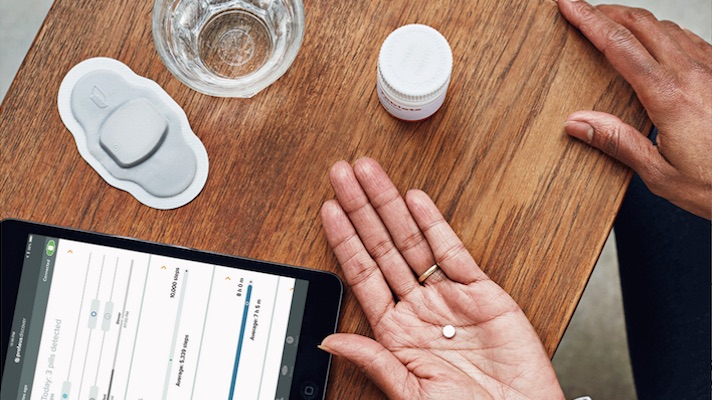
Picking through the scraps. Following the bankruptcy of 'digital pill' maker Proteus Digital Health, business partner and stakeholder Otsuka Pharmaceutical has been approved to purchase the digital health company's assets by a federal bankruptcy court judge, STAT reports.
Otsuka's bid was challenged by Novartis, two former Proteus executives and other investors, who argued that the agreed upon $15 million price tag was too low. Otsuka was the only bidder for Proteus' assets, and with this inherits the digital health company's outstanding debts.
Revenue management software M&A. Centauri Health Solutions, a technology and services company that works with payers and providers in government-sponsored healthcare programs, announced yesterday that it has acquired all of self-pay management solutions company HCFS' key assets.
The terms of the deal were not disclosed, and follow Centauri's recent purchases of AppRev and IHMS, both of which were also focused on healthcare revenue cycle tools.
“This acquisition expands our presence in the midwestern and western states, and adds another group of long-tenured, experienced associates to Centauri," Adam Miller, CEO and cofounder of Centauri, said in a statement. "The combination will allow Centauri to provide enhanced revenue cycle services to the clients of both companies.
Private college requires not-so-private COVID app. Michigan's Albion College required its roughly 1,500 returning students to download a location-tracking COVID-19 app that had at least two security vulnerabilities upon rollout, TechCrunch reports.
The app, developed by Cucleus Careers and Genetworx, helps students schedule on-campus testing and upload results, but uses its location tracking to spot potential contacts with positive cases or inform the university if a student has left the campus without permission.
Those initial security vulnerabilities have since been addressed and the school's president told TechCrunch that it is launching a security review of the app. However, parents and students said they are concerned about their privacy.
PPG diabetes detection. University of California, San Francisco researchers have described a method of using a smartphone's camera to detect "digital biomarkers" of diabetes. Outlined in a recent Nature Medicine publication, the algorithm-based approach measures photoplethysmography (PPG) in fingertips and was built using the 53,870-patient Health eHeart dataset. When tested within two separate datasets, they found that the algorithm identified diabetes in up to 81% of patients.
“We demonstrated that the algorithm’s performance is comparable to other commonly used tests, such as mammography for breast cancer or cervical cytology for cervical cancer, and its painlessness makes it attractive for repeated testing,” Dr. Jeffrey Olgin, a UCSF Health cardiologist and professor and chief of the UCSF Division of Cardiology, and one of the paper's authors, said in a statement. “A widely accessible smartphone-based tool like this could be used to identify and encourage individuals at higher risk of having prevalent diabetes to seek medical care and obtain a low-cost confirmatory test.”













